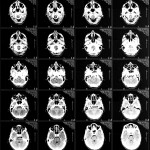
The use of illicit drugs or alcohol(substance using) is a most common precipitator of facial injuries among socioeconomically disadvantaged populations. Reducing these risky behaviours could improve outcomes and reduce potential for reinjury. The aim of this study was to assess whether a culturally competent, personalized motivational intervention incorporated into surgical care could significantly reduce existing substance use behaviours in facial injury patients.
218 substance-using patients presenting with facial injuries to a level 1 trauma centre were randomly assigned to either a personalized motivational intervention (PMI) condition or a health-information (HI) control condition. Following a short assessment of the individual’s substance use severity and willingness to change these behaviours, both groups attended two counselling sessions with a trained interventionist.
Those in the PMI group (n _ 118) received individualized, motivational interventions, whereas the HI group (n _ 100) received only general health information. Both groups were reassessed at 6 and 12 months post injury with changes in substance-use patterns being measured to assess the effects of intervention. Both groups were closely matched on their socio-demographic and substance use characteristics.
They found that:-
- The PMI group showed statistically significant declines in drug use at 6- and 12-months
- The intervention’s effect on lowering illicit drug use was greatest at the 6-months but had weakened by 12-months.
- Individuals with greater drug use dependency at baseline were seen to have larger intervention effects, as did individuals who were most aware of their drug problem and willing to change their substance use behaviours.
- Unlike illicit drug use, changes in alcohol use did not differ significantly between the intervention and control groups, irrespective of an individuals’ recognition of the alcohol problem or willingness to take steps to address it.
They concluded that:-
A culturally competent, motivational intervention integrated into the care of vulnerable patients with facial injury can reduce illicit drug use behaviours. Subgroups of injured patients appear to benefit most from such personalized motivational interventions. A better articulation of target populations, intervention content, and delivery would allow for directed interventions and an appropriate focusing of limited time and health care resources.
Shetty V, Murphy DA, Zigler C, Yamashita DD, Belin TR. Randomized controlled trial of personalized motivational interventions in substance using patients with facial injuries. J Oral Maxillofac Surg. 2011 Sep;69(9):2396-411. Epub 2011 Apr 15. PubMed PMID: 21496991; PubMed Central PMCID: PMC3163019.
